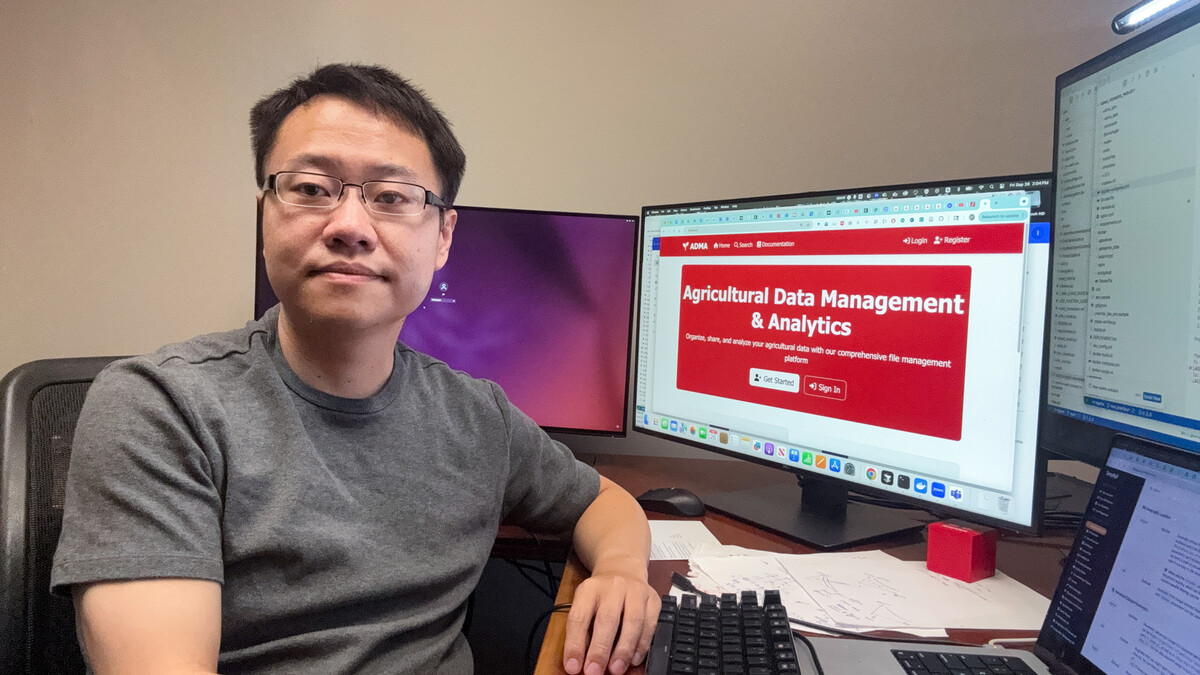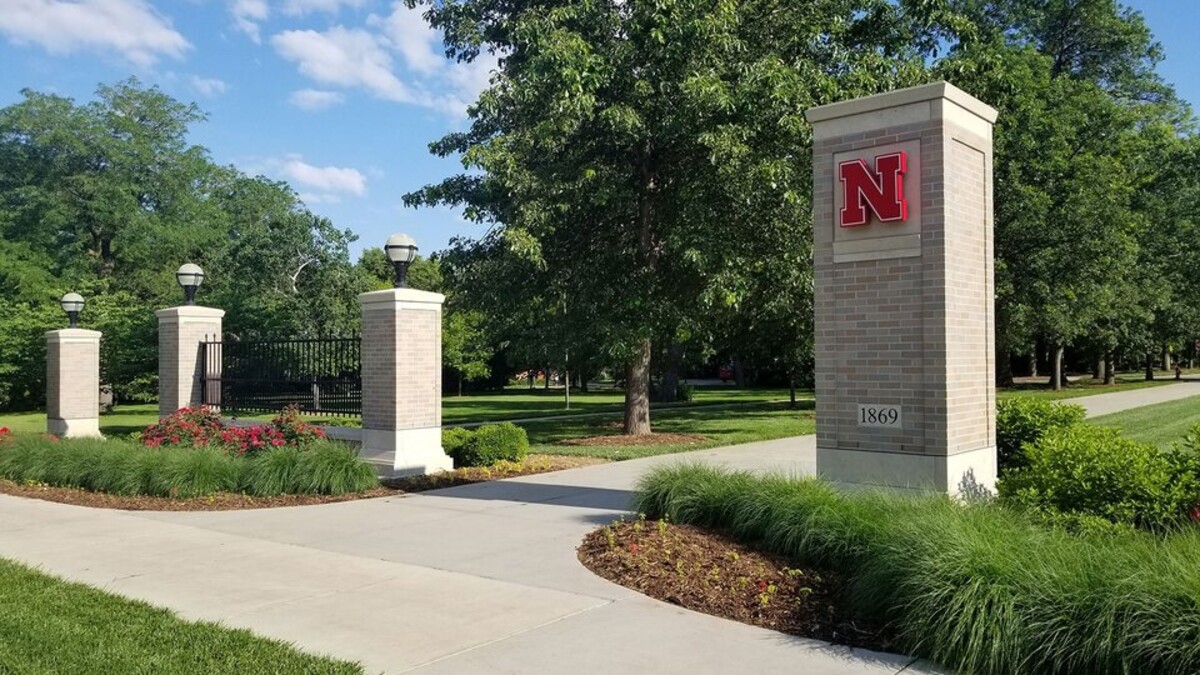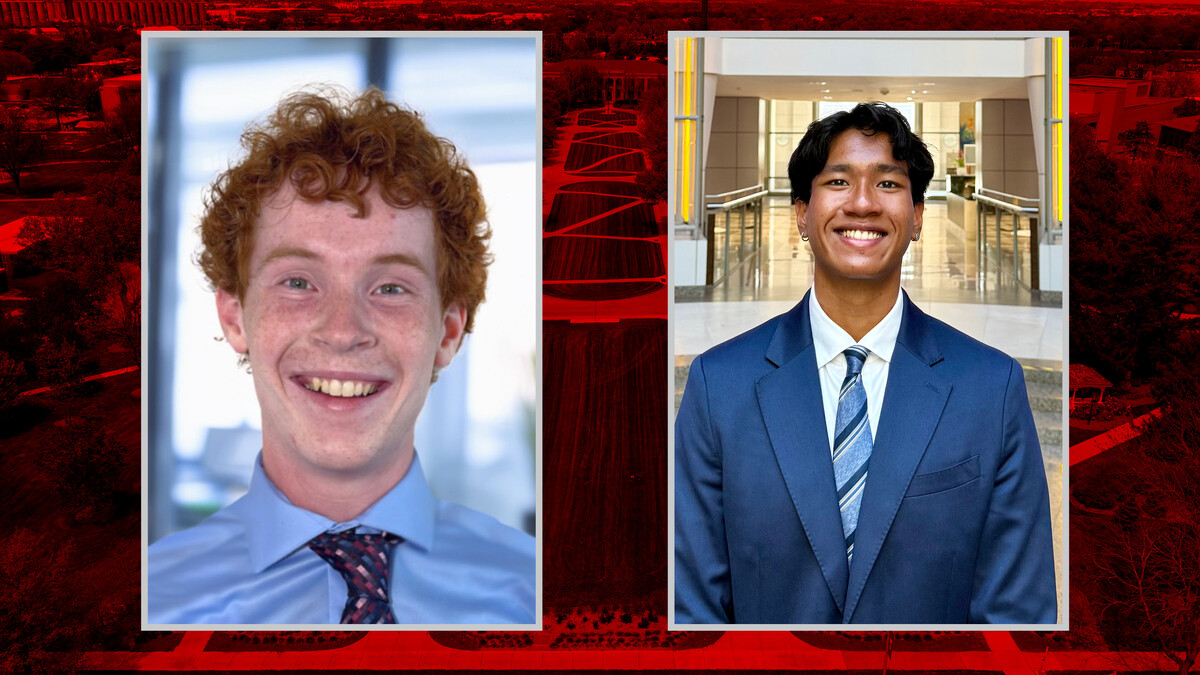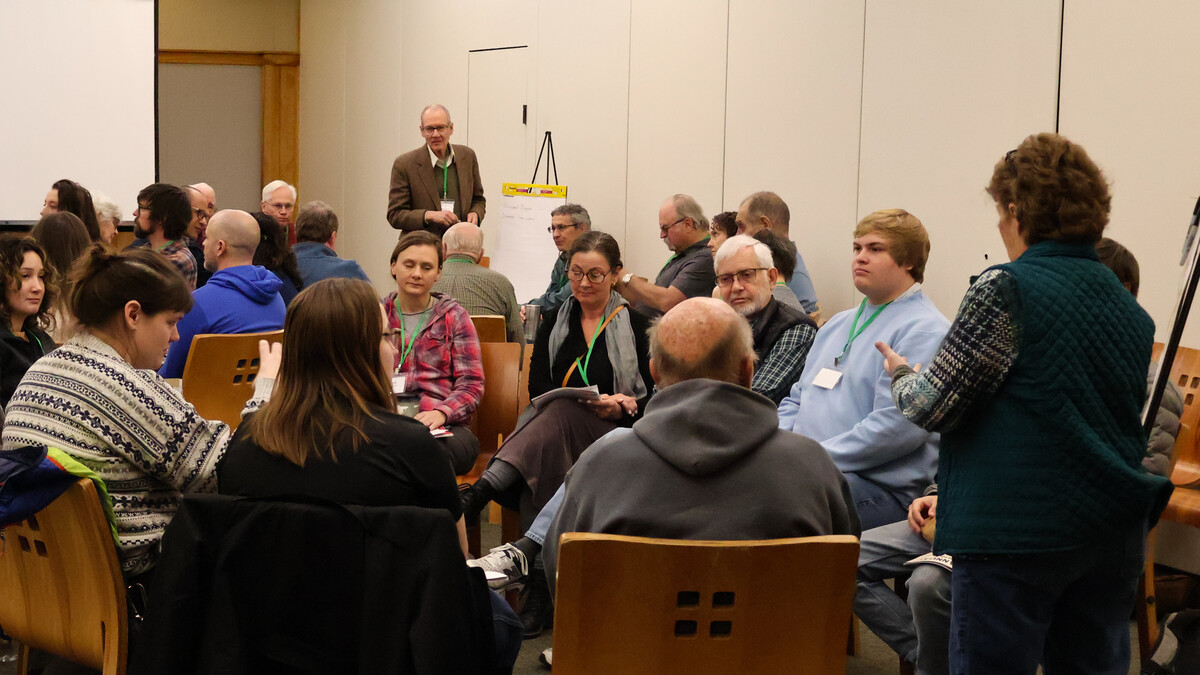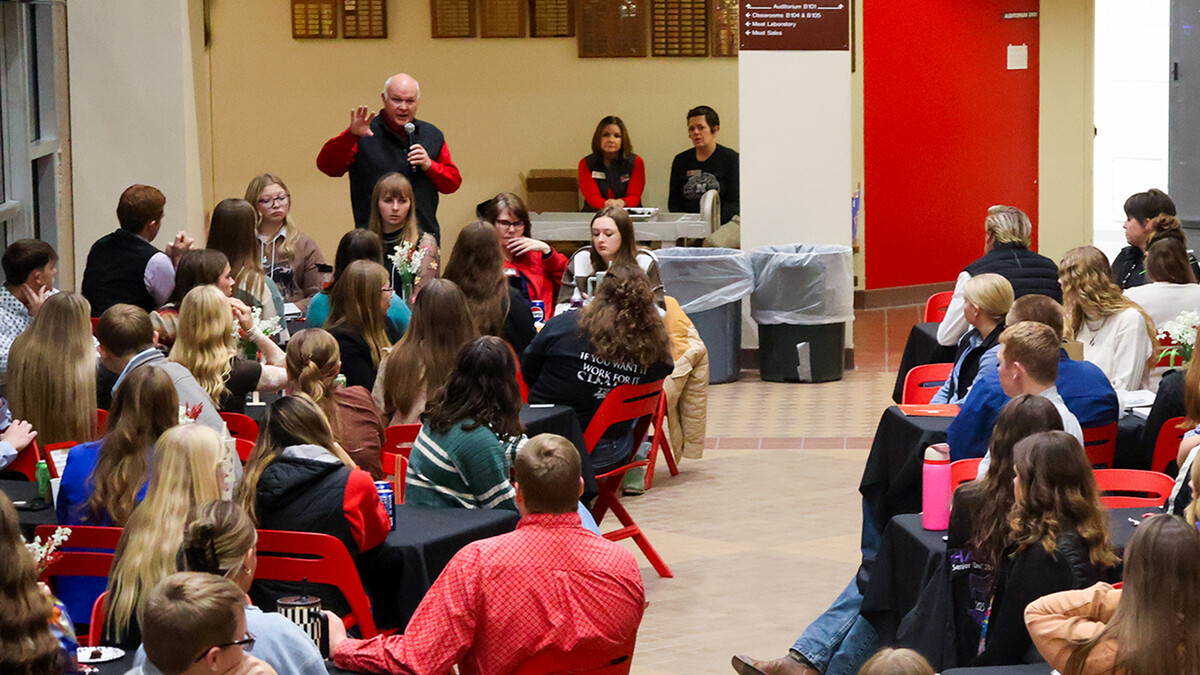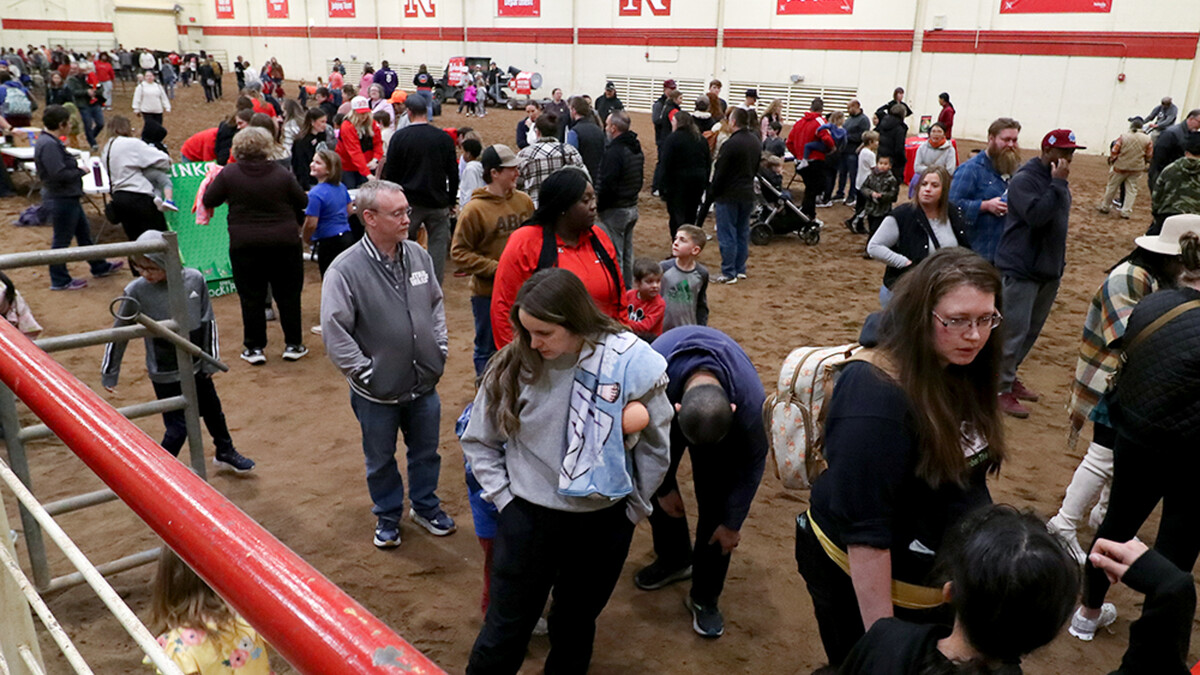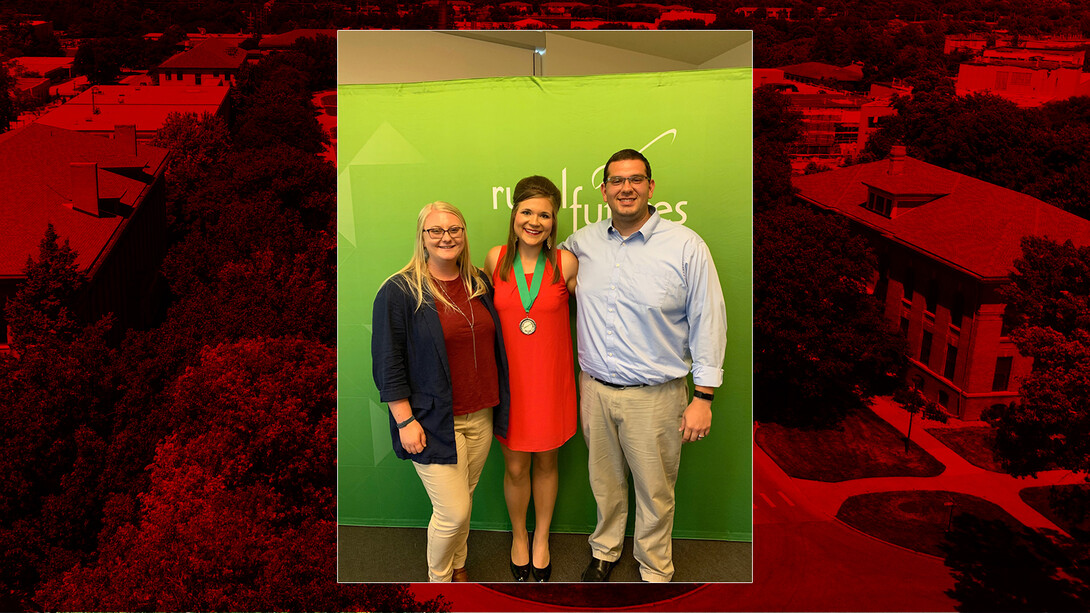
Lincoln, Neb. —“Rural matters.”
That’s the clear message Andrew Ambriz conveys when speaking about his job linking people to people and people to resources, as well as the University of Nebraska-Lincoln’s critical role in getting him there.
“Agriculture is what we are as a state, and ag doesn’t exist at scale in the big city,” said Ambriz from his Broken Bow office as Executive Director of the Custer (County) Economic Development Corporation. He is particularly fond of the Williams Jennings Bryan quote that he said just sticks with him:
Burn down your cities and leave our farms
and your cities will spring up again as if by magic.
But destroy our farms and the grass will grow
in the streets of every city in the country.
Sound like passion from a Nebraska farm kid? Not at all.
“I’m the furthest thing from a farm kid there is,” said Ambriz, who spent most of his growing up years in what he termed “not the best” neighborhood in Los Angeles, Calif. His parents pulled up stakes in 2005 and moved to Pender, where his mother grew up.
“When I got off the airplane at Eppley (Airfield, in Omaha), it was a cold evening. I didn’t own a pair of long pants,” he recalled. “I remember noticing very quickly that everything disappeared.”
Ambriz enrolled in West Point High School, where he joined FFA. Through FFA, he became psyched about public speaking, leadership and, best of all, meat judging – his chapter even nabbed a national title. Ambriz graduated from West Point High School in 2012 and headed to UNL’s College of Agricultural Sciences and Natural Resources, where he majored in animal science.
In the summer of 2016, he headed to McCook, where he received a summer serviceship in McCook, through the University. That serviceship, a predecessor of today’s Rural Fellows program, placed college students in rural communities to live and work for 10 weeks each summer.
Along with his new wife, Ambriz lived in a carriage house “where you could literally sit on the sofa, crab something out of the frig and put it on the stove without getting up,” he recounted with a grimace and chuckle.
For his fellowship, he assessed business life cycles on main street. He called the experience “hitting the bricks,” since the effort involved talking with business owners in brick buildings on main street. He particularly relished interacting with a wide diversity of personalities.
“In any given day, you could meet with business leaders, connect with old dudes at the coffee shop and interact with community volunteers,” he said. “Loved it.”
The fellowship led to a career in economic development, in which, along with his vast other duties, he makes supervision of Rural Fellows a priority. Why?
“We have all these big goals, and not enough capacity,” he said. My approach is to “give students autonomy, to put the project in their court,” he said. He is proud that two fellows he has supervised have taken on economic development roles in Nebraska.
Through his fellowship and now professional role, he has come to view economic development as “personal growth through a community lens,” he said. “What matters is results – quality of place and quality of life.”
Day-to-day, Ambriz primarily focuses on local leadership development, and business and workforce retention and recruitment.
“Just today, I connected three people who want to pull together a dog park,” he said. “We make things happen.”
Those things include securing funds to pour two basements for new houses, pulling together plans for an indoor recreational facility and teaching business acumen where a leadership class earned $12,000 in grant funds for an early childhood collaborative.
“There’s a different quality of life here in rural America. You wake up and know your neighbor. I hear from employers who recognize the strong rural work ethic,” Ambriz said.
Student fellows benefit from that work ethic, too.
“They learn how to ask hard questions (who benefits and why),” he said, “and communities get the work done.”
The Rural Fellows program is part of Rural Prosperity Nebraska, housed in UNL’s Institute of Agriculture and Natural Resources. Rural Prosperity Nebraska brings together Nebraska Extension educators, students, faculty, partner organizations and community leaders from across the state to address rural challenges and identify opportunities for growth.
Since 2013, students from the university and colleges throughout Nebraska have spent 10 weeks over a summer working with leaders in rural areas on community-developed projects. These projects are often focused on economic and business development, entrepreneurship, early childhood development, marketing and promotion and other areas critical to the sustained success of rural communities. The students’ work, on average, results in a $28,000 economic impact per community.
To apply as a Rural Fellows host or student, see www.ruralprosperityne.unl.edu.
By Jane Schuchardt
